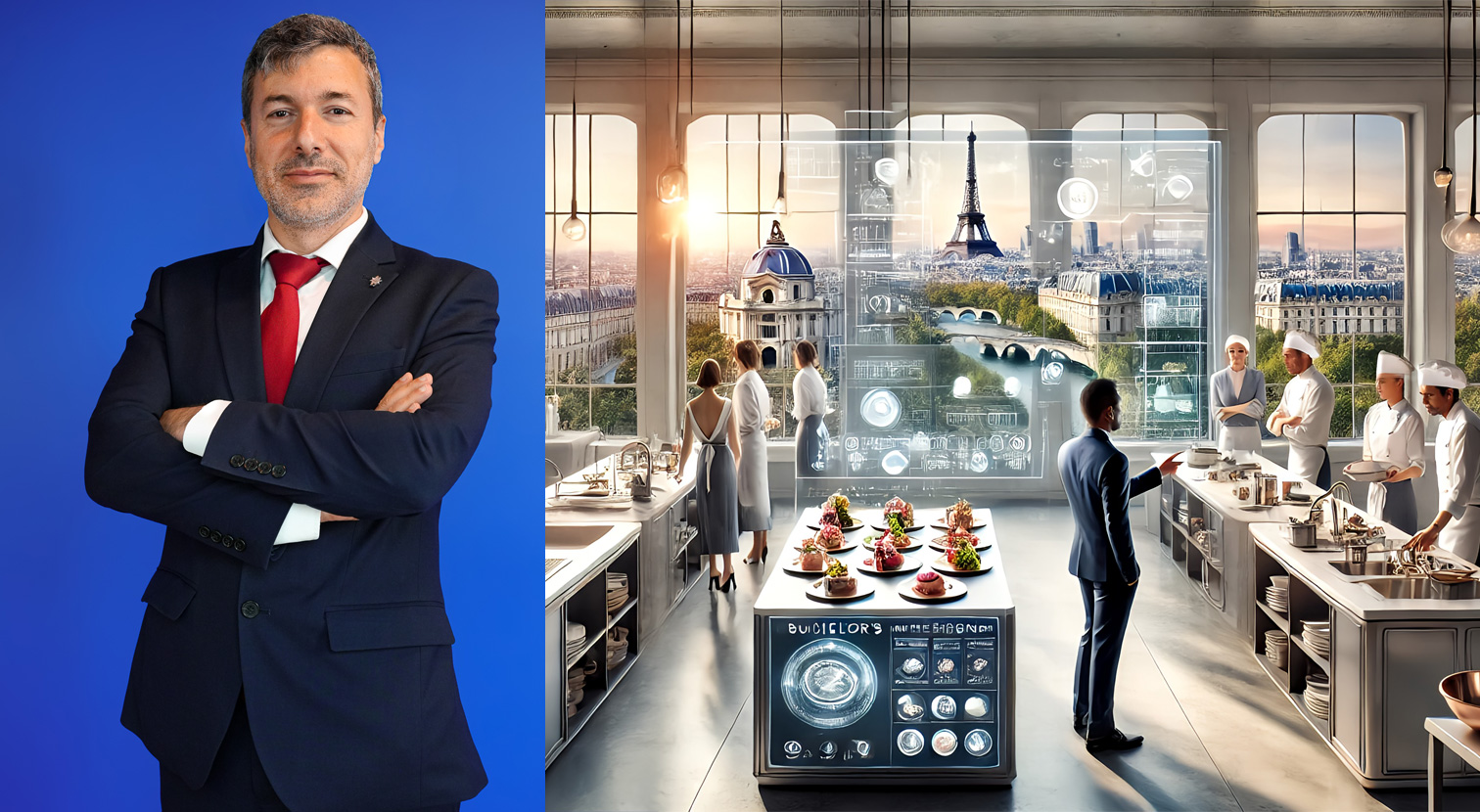Bachelor of Science in Culinary Management: addressing the modern-day challenges of gastronomy

The new Bachelor of Science in Culinary Design Management has been specifically designed to address today's gastronomic challenges by focusing on innovation, sustainability and eco-responsibility. Run in partnership with Paris Dauphine-PSL University, this programme leverages a multidisciplinary approach that provides training in culinary management, design thinking, finance, economics and data management. Over the course of three years, students acquire both practical and creative expertise, notably thanks to a 10-week internship and overseas experience in London.
We chat with Senior Lecturer Sarkis Nehme to find out more.
Why has this diploma been reworked?Sarkis Nehme: This diploma has been redesigned to address the new challenges that the gastronomy and culinary arts sector finds itself confronted with today. Faced with changing market demands and the growing importance of innovation, sustainability and eco-responsible practices, it is crucial that our training equips students to combine management skills with the design thinking approach that companies in this field are now looking for. Our unique partnership with Paris Dauphine-PSL University enables us to strengthen this holistic, multidisciplinary approach.
What are the programme’s key strengths?S.N: The Bachelor of Science in Culinary Design Management certainly has a lot to offer:
• It is a three-year programme that includes a 10-week internship and overseas experience in London.
• It is a programme that develops culinary management expertise alongside training in design thinking and innovation, as well as including modules dedicated to finance, economics, data management and sustainability.
• It has a strong practical and creative focus, with projects geared towards tackling issues related to the environment, the supply chain, changing socio-cultural trends and shifting dietary habits.
• There are classes dedicated to contemporary techniques and digital technologies, and students are introduced to innovative approaches on which they will be able to draw to shape unique gastronomic experiences.
What are your goals and objectives for this diploma?S.N: Our objective is to train professionals who are capable of taking an ethical, sustainable and entrepreneurial approach when devising solutions to address the challenges facing the gastronomy sector today. The aim is to prepare students for a wide range of careers, from designing food products and creating gastronomic experiences to brand management, strategic design or even sustainable development consultancy roles. Graduates will also be equipped to accommodate regulatory and market changes by leveraging a problem-based approach to leadership.
The programme has been designed to progressively build students’ skills: the first year covers the basics of commercial operations and the socio-cultural aspects of gastronomy; year two focuses on addressing issues related to ecology and sustainability; and the third and final year teaches students how to apply their legal, financial, managerial and environmental insights to develop optimal solutions.
What kinds of careers can students hope to pursue?S.N: The programme prepares students to embark on a wide range of careers, paving the way for them to become Food Product Designers, Food Event Designers, Gastronomy Consultants, UX/UI Designers, Project Managers, Innovation Managers or Entrepreneurs.
Interested in the new Bachelor of Science in Culinary Design Management ? All the information is on the diploma page.

